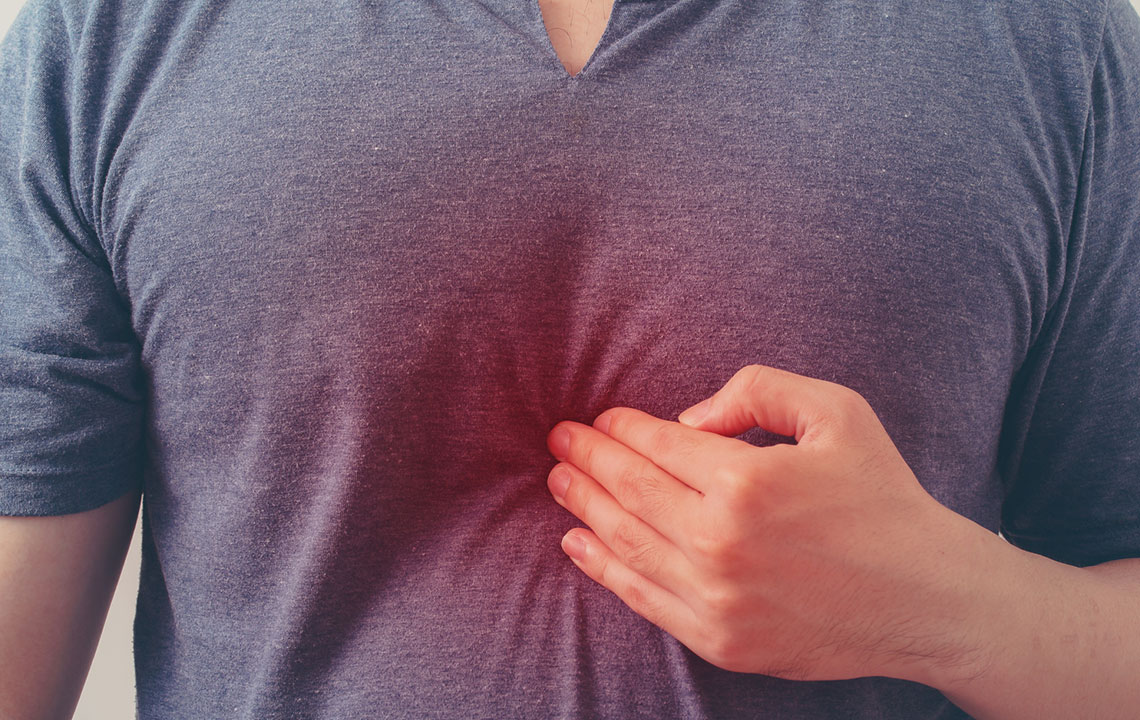A Brief Overview of GERD
A chronic digestive disorder, GERD or gastroesophageal reflux disease affects the lower esophageal sphincter (LES), which is located between the esophagus and the stomach. It occurs when bile or stomach acid flows into the esophagus and irritates the esophageal lining. People with GERD often experience heartburn or acid reflux. This condition is quite common, but it can be a cause for concern if a person suffers from acid reflux frequently.
What causes GERD?
Under normal circumstances, the LES relaxes when a person swallows. This allows food and liquid to flow into the stomach. The LES then closes up again. In some cases, the LES may relax in an abnormal way, or it may become weak.

A constant backwash of acid will irritate the lining of the esophagus. The esophagus may become inflamed due to chronic GERD. An inflamed esophagus may make the food pathway narrow due to the formation of scar tissue at the lower end of the esophagus. At times, the tissue in the esophagus may wear away due to the constant flow of stomach acid. An open sore may develop, causing an esophageal ulcer, which may bleed and hurt.
What are the risk factors associated with GERD?
A few factors increase the risk of GERD. Some of the most common ones are obesity and hiatal hernia (causes the top of the stomach to bulge up into the diaphragm). Other factors include pregnancy, delays in emptying the stomach, and connective tissue disorders like scleroderma. In addition, a few factors like smoking, eating large meals or eating too late at night can aggravate GERD. Regular intake of caffeinated or alcoholic beverages can also trigger the symptoms of GERD. Eating fatty or fried foods can also worsen the signs of GERD.
What are the common symptoms of GERD?
One of the common symptoms of GERD is experiencing a burning sensation in the chest (heartburn) after eating. Heartburn may get worse at night. A person may also experience chest pain and have a sensation of a lump in their throat. They can face difficulties in swallowing as well. A person may also experience regurgitation of food or sour liquids. Some people with GERD face nighttime acid reflux. The symptoms of nighttime acid reflux include chronic cough, laryngitis, disrupted sleep, and new or worsening asthma.
How is GERD diagnosed?
GERD is usually diagnosed based on the medical history of the patient, and a physical examination of the signs and symptoms they are experiencing. To confirm a diagnosis, a doctor may suggest a series of tests.
- Ambulatory acid probe test: A small, temporary capsule is attached to the esophagus in this test. The capsule will monitor when and for how long acid flows from the stomach into the esophagus.
- Upper endoscopy: A thin, flexible tube equipped with a light and camera is inserted inside the esophagus and directed towards the stomach. This test will inspect the esophagus and check for damage caused by the backwash of acid.
- X-ray of the upper digestive system: A X-ray of the esophagus, stomach, and upper intestine is taken to look for physical anomalies that may occur due to GERD.
- Esophageal manometry: During this test, the muscle contractions of the esophagus are measured while swallowing. It can help in measuring the strength of the esophageal sphincter.
Are there any home remedies for GERD?
For treating GERD, doctors usually recommend over-the-counter as well as prescription medications. Although prescription medications do not cost much, people with chronic GERD can avail of discount coupons on Nexium® 24HR to save on medical bills. It is advisable to consult a doctor before taking any medication. Apart from medications, there are a few home remedies that can ease the symptoms of GERD.
- Avoid overeating: Usually, acid reflux increases after meals. A larger meal may worsen the problem. Overeating leads to extra pressure on the LES, causing the stomach acid to squeeze through the opening. So, avoiding larger meals can help prevent acid reflux and GERD.
- Have fewer carbs: Low-carb diets have been known to provide relief from acid reflux because acid reflux is often caused by indigestion of carbs. To avoid the symptoms of GERD, it is recommended to control the intake of dairy products, starchy vegetables, legumes, and sugary sweets.
- Avoid caffeinated beverages: Caffeinated beverages like coffee can weaken the lower esophagus. This may worsen acid reflux and heartburn and increase the risk of GERD.
- Stay away from raw onions: Raw onions can increase the occurrence of heartburn, belching, and acid reflux. Onions contain higher levels of fermentable fiber, which produces more gas and increases the risk of acid reflux.

